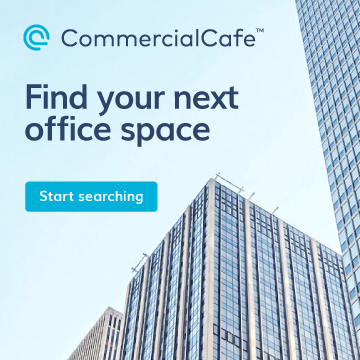At whichever business-building stage you find yourself, it will always matter how much space you have in which to operate, as well as where that office space is located. A traditional arrangement, although structured for stability, offers less time and financial flexibility than a business needs during its early years.
Enter the co-working space providers! In many ways, shared space solutions complement traditional office lease arrangements. First-tier advantages are convenience and highly-prized flexibility in operations. Moreover, co-working space providers are actively forging start-up communities, which foster empowering partnerships among co-working space users. This, in turn, not only nourishes tenant loyalty, but also helps each collaborating start-up’s chances of success.
How Business Grows Greater in Philadelphia
So how can you know which option is best for you and your business? We’ve been conducting a series of Q&As with industry professionals who have successfully met their small-to-medium-sized business needs, and have shared their advice and insight into the process of finding the perfect office space.
This time, we sat down with Matt Nicosia, CEO and Co-founder of GuestOf, provider of physical access control and identification solutions, which can be integrated into any on-demand service platform or application.
Created by two college friends in 2016, GuestOf has found room and support to grow within Philadelphia’s incubator scene, and is now operating out of Southwest Center City and, soon, University City. A fan of co-working spaces, Nicosia explains how important flexibility is in maintaining the “right fit” for your business at any given time, as it grows and changes.
Check out Nicosia’s interview below, and see how GuestOf has addressed its changing needs and found most value within the co-working community.
Q: Tell our readers a little bit about your business: what industry are you in and what services do you provide?
A: GuestOf is enabling the future of the on-demand economy by providing access and identity as a service for the physical world. Physical access control and identification solutions are currently custom-built for every application need, such as ticketing and apartment entry. As on-demand services continue to grow, more industries will require these solutions to unlock real value, but it’s not their core competency—they should be spending their time and money building their actual businesses, not on custom-developing hardware and an entire access control ecosystem.
With GuestOf, companies can launch faster and spend less by integrating our scalable platform and hardware into whatever product they’re building, to automate and manage authentication, access control, event logging, and other processes. They can then kick off actions, enable analytics, and more in their own software. Our highly-customizable back-end does the heavy lifting, providing a customer solution with the data and control it needs.
Q: Where is your office space located and what did you consider when searching for it? Did you use a third-party company?
A: We’re currently in transition, so we have two office spaces at the moment. For a year or so we’ve been incubated at NextFab, a “makerspace” in the Philadelphia area. We were interested in working out of there early on, as it’s a great place to prototype physical hardware components, both with equipment and people. We’re moving now to another incubator space in Philly, ic@3401, which focuses more on business development and scaling of startups. We didn’t use a third party when searching, just utilized our own network to discover these opportunities.
Q: What do you think is the most important thing when searching for office space?
A: For us it’s expertise—the opportunity to bump elbows with people who are currently working on or have already tackled the same problems you have is a huge help. They can tell you what worked for them and what didn’t to point you in the right direction, and connect you with the right people, thus saving you a ton of time, which is so important in a startup. Proximity to important resources is also of help, but I think expertise is #1.
Q: What challenges did you encounter in the process of leasing/buying the office space and how did you deal with them?
A: We’re still a small company, so finding office space fortunately hasn’t been too difficult yet. The biggest challenge is making sure a space is the right fit for us, both from a cost perspective and a benefit perspective. You need to understand what phase of growth your company is in and make sure you get the biggest benefit from it. For example, we could get our own office somewhere right now, but it would cost more than we can afford and, more importantly, would close us off and prevent us from making important connections in the startup and business community.
Q: How do you feel about co-working spaces?
A: I love them. Both of our Philadelphia office locations act as quasi-co-working spaces (with some level of specialization), and, like I already said, it’s so important to me to be among people who are tackling the same challenges as I am. Nowhere else do you get the opportunity to work among so many different ideas and viewpoints, not to mention the flexibility to change as your company does. We also have some co-working spaces as customers, and we can see the benefit and value as they continue to grow.
Q: What would you recommend to other start-ups looking for office space?
A: Know what stage your company is at, where you’re likely to be in the next one to two years, and what would give you the most value. Are you an early-stage company with few employees like us? Co-working spaces or incubators are probably your best bet, and those with a focus on your type of business are even better. Are you starting to build out a fairly big team? Then maybe it’s better to start looking at more traditional commercial real estate, especially if you plan on hiring even more, although many co-working spaces do offer whole office plans, too.
Q: Are there any other things you want to share with us? Feel free to add any other information, tips & tricks, or anything else you think start-ups should look out for.
A: Just know that where you’re at can make a big difference. A lot of people view startups as being based out of your garage or something, but if you can get into a physical location for a good price (or even for free sometimes, if you’re accepted into an accelerator), do it earlier rather than later. Not only do you get access to additional resources, it also helps separate your work from your life. Starting a company is stressful enough as it is, and you’re going to be thinking about it nearly 24/7, so if you can keep your work physically somewhere other than your home, it can help alleviate that a bit.













